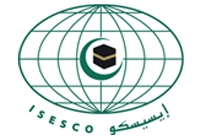General Track
Papers subject within the scope of the conference may be submitted to one of the following General Track session. These papers will be reviewed by knowledgeable referees, and if accepted, allocated to oral or poster sessions for presentation at the conference.
Authors may also submit to an Invited Session if invited to do so by the session chair, or their paper fits the scope of the session better than the General Track.
The General Track Sessions are as follows (topics still to be finalised):-
Direct Solar: Solar Thermal, Solar PV, Wind Energy, Radiation and Climate Change, Solar Energy, PV electricity, Solar Thermal Heating, Solar Thermal Collectors, large scale installations, decentralized installations, CPV - Concentrating Photovoltaic, CSP – Concentration Solar Power, climate change mitigation, storage technologies, capacities, hybrid power plants, wind power, biomass, hydro power, geothermal energy, security of energy supply, economic growth, job creation.
Chair: Rainer Hinrichs-Rahlwes, European Renewable Energy Council
Sustainable Building: Science and Technology (SBST): Two Foci: i. The assessment and monitoring of the environmental performance of sustainable buildings - during design, construction, commissioning, handover, retrofit or the refurbishment process, using either quantitative or qualitative techniques; physical testing of international comfort conditions versus energy use and climate conditions; building user and design team interviews; building performance; thermography; air tightness testing; education and training; development of assessment methods; comparison of methodologies and regulations in one country or between countries. ii The design, construction and operation of sustainable buildings - comparison and evaluation of sustainable building design and construction strategies and details and calculated carbon emissions with performance and carbon emissions in use, to include physical and / or social assessment; validation of building design and modelling with performance in use, through physical assessment and / or interviews; post occupancy evaluation, including renewable energy performance, building systems and user interaction of sustainable buildings; the use and evaluation of user guides for sustainable buildings; the evaluation of design team and occupant walk-throughs in sustainable buildings.
Chair: John Littlewood, Cardiff Metropolitan University, Wales, UK
Novel Technologies:
Sustainable hydrogen production, storage and distribution for mobile and stationary applications; Fuel cell technologies (SOFC, MCFC, PEMFC, etc.); combined heat and power (CHP); heat recovery and thermo-electric generators (TEG), electro-mobility for sustainable transportation; materials for energy storage; geothermal energy technologies.
Chair: Jazaer Dawody, Volvo Technology, Sweden
Bioenergy Technologies: Biomass, biofuel, Stirling cycle engines, bio-fuelled diesel generators; chemical and bio-chemical techniques; bio-mass generation schemes; Geothermal systems. Waste water treatments.
Chair: Anastasia Zabaniotou, Aristotle University of Thessaloniki, Greece
Wind and Ocean Energy Conversion: Offshore and onshore wind turbines, wave, tidal, current and osmotic converters, novel techniques and related topics.
Chair: Fernando Tadeo, University of Valladolid, Spain
Smart Energy Technologies: Smart grids, smart buildings, smart cities; application of intelligent systems to renewable energy and energy efficiency; micro grids; smart energy management and control system; energy storage solutions; optimisation, automation and controls challenges in combination with the grid restrictions for operability and overall system integration; configuration, control and management of smart grids; measurement, control, modelling, optimisation, monitoring, electronic energy conversion systems.
Chair: Catalina Spataru, University College London, UK
Governance and Policy relating to Sustainability in Energy and Buildings: Papers on the following topics are welcome and should be submitted to whichever of the above track seems the most applicable.
Green economy and governance; Green energy and environment; regional development; financial and regulatory mechanisms, models and tools. Environmental, air pollution and water pollution policies; land management; waste management; biomass management; social aspects.








